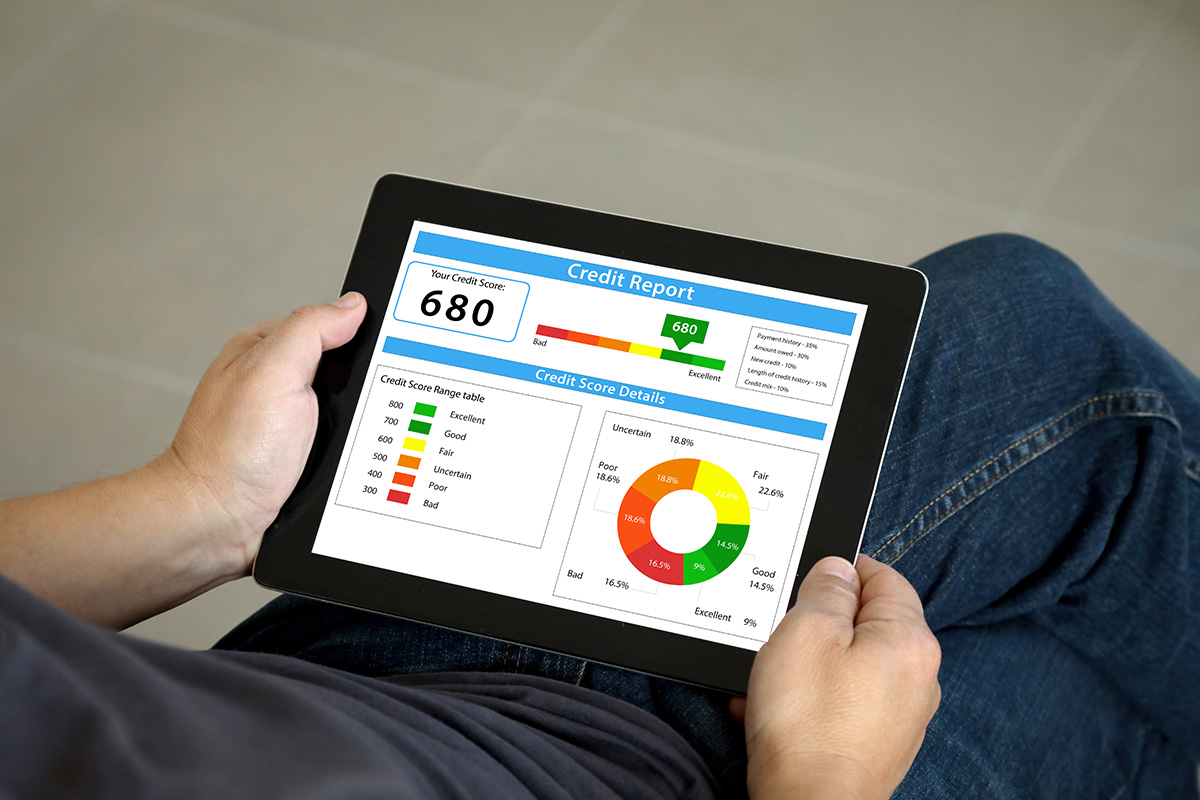

Finance
Which Credit Card Pulls Transunion
Modified: February 21, 2024
Are you looking for a credit card that pulls Transunion for better finance management? Discover the best options and benefits here.
(Many of the links in this article redirect to a specific reviewed product. Your purchase of these products through affiliate links helps to generate commission for LiveWell, at no extra cost. Learn more)
Table of Contents
Introduction
When it comes to applying for a credit card, it’s important to understand the role that credit bureaus play in the process. These bureaus, such as TransUnion, collect and maintain consumer credit information that is used by lenders to assess creditworthiness. Each credit bureau may have different data and scoring models, so it’s crucial to know which bureau a credit card issuer will pull information from when reviewing your application.
In this article, we will focus on TransUnion and explore which credit cards are known to pull information from this bureau. We will also discuss how you can check which credit bureau a particular card issuer uses, and provide some factors to consider when choosing a credit card.
Understanding which credit bureau is being pulled is crucial because it can impact your credit score and application approval. Additionally, it’s important to note that credit card issuers may not always disclose which bureau they use, so it may require some research on your part.
By knowing which credit bureau a card issuer pulls from, you can have a better idea of the likelihood of approval, as well as the potential interest rate and credit limit you may receive. This information can help you make more informed decisions when it comes to applying for credit cards.
In the following sections, we will delve into the specifics of TransUnion as a credit bureau and explore some credit cards that are known to pull information from this bureau. Let’s get started!
Understanding Credit Card Applications
Before we dive into the specifics of which credit cards pull information from TransUnion, it’s important to have a basic understanding of how credit card applications work. When you apply for a credit card, the issuer will review your application and assess your creditworthiness to determine if they should approve you for the card.
The application process typically involves providing personal information such as your name, address, social security number, and income. The credit card issuer will then use this information, along with data from credit bureaus, to evaluate your creditworthiness.
The evaluation process includes reviewing your credit history, credit scores, and other factors, such as your income and debt-to-income ratio. Based on this evaluation, the credit card issuer will make a decision on whether to approve your application, the credit limit you’ll receive, and the interest rate you’ll be offered.
It’s important to note that not all credit card applications are guaranteed to be approved. Each credit card issuer has its own set of criteria for approval, and they may consider different credit bureaus when assessing your application. This is where understanding which credit bureau a card issuer pulls from becomes crucial.
By knowing which credit bureau a credit card issuer uses, you can have a better idea of the type of information they will be looking at when reviewing your application. This knowledge can help you improve your chances of approval and ensure that the information on your credit report is accurate and up to date.
Now that we have a general understanding of credit card applications, let’s explore the role of credit bureaus and how TransUnion fits into the picture.
The Role of Credit Bureaus
Credit bureaus, also known as credit reporting agencies, play a crucial role in the credit industry. They collect, maintain, and organize financial data and credit information on individuals and businesses. This information is then used by lenders, including credit card issuers, to assess creditworthiness and make informed decisions regarding loan approvals.
There are several major credit bureaus in the United States, including Equifax, Experian, and TransUnion. Each bureau collects data from various sources, such as banks, credit card companies, and other financial institutions. They compile this data into credit reports that provide detailed information about an individual’s credit history, including their payment history, outstanding debts, and credit limits.
When you apply for a credit card, the card issuer will typically request a copy of your credit report from one or more credit bureaus to evaluate your creditworthiness. This information helps them assess the risk of extending credit to you and determine the terms of the credit card, such as the credit limit, interest rate, and any fees or rewards associated with the card.
It’s important to note that the information collected by credit bureaus can vary from bureau to bureau. Although the general credit information should be consistent across all bureaus, there may be slight differences in the data reported. This is because not all lenders report to every credit bureau, and each bureau may have different methodologies for collecting and reporting data.
One of the major credit bureaus that credit card issuers often pull information from is TransUnion. Let’s take a closer look at TransUnion and its role in the credit industry.
TransUnion: An Overview
TransUnion is one of the three major credit bureaus in the United States, along with Equifax and Experian. It has been operating for over 50 years and has established itself as a trusted source of credit information for lenders and consumers alike.
As a credit bureau, TransUnion collects and maintains a vast amount of consumer credit data. This includes information on credit cards, loans, mortgages, and other financial accounts. They aggregate this data into credit reports, which provide a comprehensive snapshot of an individual’s credit history and financial behavior.
TransUnion collects data from a variety of sources, such as banks, credit card companies, and lenders. They continuously update and verify this data to ensure its accuracy and reliability. When a credit card issuer pulls information from TransUnion, they receive a detailed report that includes information on the individual’s payment history, credit utilization, length of credit history, public records, and more.
In addition to providing credit reports, TransUnion also offers credit monitoring services to help individuals stay informed about changes in their credit profile. They provide tools and resources for consumers to manage their credit effectively and protect their identities from fraud and unauthorized use.
TransUnion plays a critical role in the credit industry by providing lenders with valuable information to assess creditworthiness. Lenders use this information to make decisions on credit card approvals, set credit limits, and determine interest rates. By understanding how TransUnion operates and the type of information it provides to lenders, consumers can take steps to improve their credit profiles and make informed financial decisions.
Now that we have a better understanding of TransUnion and its role as a credit bureau, let’s explore which credit cards are known to pull information from this bureau.
Credit Cards That Pull TransUnion
When applying for a credit card, it’s important to know which credit bureau the card issuer will pull information from. While some credit card issuers may pull information from multiple bureaus, others may primarily rely on TransUnion for their credit assessment process.
While specific information on which credit bureau a card issuer pulls from may not always be disclosed by the issuer, there are certain patterns and common practices that can help guide your application strategy. Based on anecdotal evidence and customer experiences, here are some credit cards that are known to frequently pull information from TransUnion:
- Chase Sapphire Preferred® Card
- Citi® Double Cash Card
- Capital One® Venture Rewards Credit Card
- Discover it® Cash Back
- American Express® Gold Card
- Bank of America® Cash Rewards Credit Card
It’s important to note that this list is not exhaustive and may vary depending on individual experiences and specific card promotions. Additionally, credit card issuers may update their policies and practices over time, so it’s always recommended to do your due diligence and verify the information with the card issuer directly.
If you’re unsure about which credit bureau a specific credit card issuer pulls from, there are a few ways you can find out:
- Call the credit card issuer’s customer service: Reach out to the card issuer’s customer service and ask them which credit bureau they typically use for credit card applications.
- Check online credit card forums and communities: Online forums and communities dedicated to credit cards often have discussions and insights from cardholders who share their experiences regarding which bureau was pulled for their applications.
- Use credit monitoring services: Some credit monitoring services provide information on which credit bureau was pulled for specific applications. These services can be helpful if you’re actively monitoring your credit or planning to apply for multiple cards.
By understanding which credit bureau a card issuer pulls from, you can be better prepared when applying for a credit card. It allows you to monitor your credit reports from that specific bureau and ensure that the information being assessed by the card issuer is accurate and up to date.
Now, let’s discuss some factors to consider when choosing a credit card.
How to Check Which Credit Bureau Is Pulled
Knowing which credit bureau a credit card issuer pulls information from is essential when applying for a new credit card. While some issuers may not disclose this information upfront, there are several ways you can find out which credit bureau is being used for your application:
- Contact the card issuer: The easiest and most reliable way to find out is to directly contact the credit card issuer’s customer service. They should be able to provide you with the information you need and answer any questions you may have about their credit assessment process.
- Read the credit card terms and conditions: Take the time to carefully review the credit card’s terms and conditions. Sometimes, the issuer may mention the specific credit bureau they primarily pull information from. Look for keywords like “credit reporting agency” or “credit bureau” to locate this information.
- Research online: Visit online credit card forums, websites, and blogs that discuss credit card application experiences. Many users share their experiences and mention which credit bureau was pulled when they applied for a specific credit card. Keep in mind that these experiences are subjective, so it’s best to gather information from different sources for a more accurate understanding.
- Use credit monitoring services: If you’re a subscriber to a credit monitoring service, check if they offer data on which credit bureau is being pulled for credit card applications. Some services provide this information as part of their monitoring features, allowing you to track and manage your credit information more effectively.
Remember that credit card issuers may occasionally change their practices and pull information from different bureaus. While the above methods can provide you with valuable insights, it’s always a good idea to verify the information by contacting the card issuer directly.
Understanding which credit bureau is being used allows you to monitor your credit reports from that particular bureau more closely. Regularly reviewing your credit reports ensures the accuracy of the information being used for credit card applications and helps you identify any discrepancies or errors that may impact your creditworthiness.
Now let’s explore some factors to consider when choosing a credit card.
Factors to Consider When Choosing a Credit Card
Choosing the right credit card can have a significant impact on your financial well-being. With so many options available, it’s important to consider several factors to find a card that best fits your needs and financial goals. Here are some key factors to consider when choosing a credit card:
- Rewards and benefits: Determine what type of rewards and benefits you value the most. Some credit cards offer cashback on purchases, while others provide travel rewards, points for specific retailers, or discounts on certain services. Consider your spending habits and lifestyle to choose a card that aligns with your preferences and offers the most valuable rewards for your needs.
- Annual fees: Some credit cards charge an annual fee for the privilege of using them. While cards with annual fees often come with more significant rewards and perks, weigh the value of those benefits against the cost of the fee. If you don’t plan to utilize the card’s benefits regularly, a no-fee card might be a better choice.
- Interest rates: Interest rates can significantly impact your credit card balance if you carry a balance from month to month. Compare interest rates among different cards and choose one with a lower rate to minimize interest charges, especially if you anticipate carrying a balance on your card.
- Introductory offers: Some credit cards offer attractive introductory offers, such as 0% APR for a set period or bonus rewards for spending a certain amount within the first few months. Consider these offers and evaluate if they are beneficial to your financial situation and spending habits.
- Credit limit: The credit limit determines the maximum amount you can borrow on the card. If you need a higher credit limit for your anticipated expenses, consider cards that offer higher limits or allow for credit limit increases over time.
- Fees and penalties: Read the fine print and understand any fees associated with the card, such as late payment fees, foreign transaction fees, or balance transfer fees. Avoid surprises by choosing a card with fees that align with your financial habits and travel plans.
- Customer service: Consider the level of customer service offered by the credit card issuer. Look for reviews and feedback from current cardholders to gauge the issuer’s responsiveness, support, and dispute resolution process. Excellent customer service can make a significant difference if you encounter any issues or have questions regarding your account.
Remember, it’s crucial to understand your financial habits, spending patterns, and goals when evaluating credit card options. Consider how you plan to use the card, your repayment strategy, and the benefits that matter most to you. By carefully considering these factors, you can choose a credit card that not only meets your needs but also helps you build a positive credit history and achieve your financial objectives.
Now that we’ve explored the factors to consider when selecting a credit card, let’s summarize the key points.
Conclusion
Choosing the right credit card involves careful consideration of various factors such as rewards, fees, interest rates, and credit limits. Understanding which credit bureau is pulled by a card issuer, such as TransUnion, can also provide valuable insights into the application process and help you monitor your credit information effectively.
In this article, we’ve discussed the importance of knowing which credit bureau is pulled when applying for a credit card. We explored TransUnion as a major credit bureau and its role in the credit industry. We also provided a list of credit cards that are known to frequently pull information from TransUnion.
Additionally, we provided guidance on how to check which credit bureau is pulled for a credit card application, including contacting the card issuer, reading the terms and conditions, researching online, or utilizing credit monitoring services. Understanding which bureau is being used can help you ensure the accuracy of your credit report and improve your chances of approval.
Lastly, we discussed the key factors to consider when choosing a credit card, including rewards and benefits, annual fees, interest rates, introductory offers, credit limits, fees and penalties, and customer service. Evaluating these factors based on your financial goals and spending habits will help you select a card that best suits your needs.
Remember, choosing a credit card is a personal decision that should align with your financial situation and goals. Take your time, do your research, and compare different options to make an informed choice. By selecting the right credit card, you can not only enjoy the benefits and rewards it offers but also manage your credit responsibly and build a stronger financial future.














